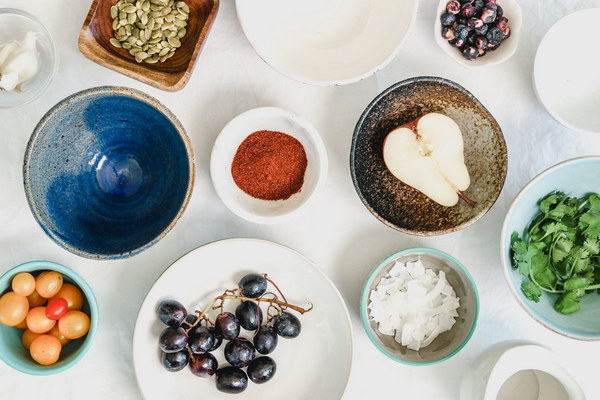Does Eating Job's Tears Really Relieve Dampness in Women A Comprehensive Look
Introduction:
In traditional Chinese medicine, dampness is considered a common problem among women, leading to various health issues such as fatigue, bloating, and weight gain. Job's tears, also known as Coix Seed, has been used for centuries as a natural remedy to alleviate dampness. But does eating Job's tears really work? This article delves into the science and folklore surrounding the benefits of Job's tears for women's health.
1. Understanding Dampness in Traditional Chinese Medicine:
In traditional Chinese medicine, dampness refers to a condition where excess fluid accumulates in the body, leading to various health issues. It is believed that women are more prone to dampness due to their unique physiological characteristics, such as menstrual cycles and pregnancy. Dampness can manifest in various ways, including fatigue, weight gain, bloating, and water retention.
2. Job's Tears: A Natural Remedy for Dampness:
Job's tears, or Coix Seed, are small, oval-shaped seeds that have been used in traditional Chinese medicine for centuries. They are believed to have diuretic, anti-inflammatory, and blood-purifying properties, making them a popular choice for treating dampness-related conditions. The seeds are typically consumed as a tea or added to soups, stews, and porridge.
3. Scientific Evidence for Job's Tears and Dampness:
While traditional Chinese medicine has long attributed health benefits to Job's tears, scientific research is still limited. However, some studies have suggested that Job's tears may have potential health benefits, including:
- Anti-inflammatory properties: Job's tears contain compounds that may help reduce inflammation in the body, which can alleviate symptoms associated with dampness, such as joint pain and bloating.
- Antioxidant properties: The antioxidants present in Job's tears may help combat free radicals and reduce oxidative stress, which can contribute to the development of chronic diseases.
- Diuretic effects: Job's tears may have a mild diuretic effect, which can help reduce water retention and alleviate bloating.
4. How to Incorporate Job's Tears into Your Diet:
If you're interested in trying Job's tears to alleviate dampness, here are a few ways to incorporate them into your diet:
- Job's tears tea: Boil 1 tablespoon of Job's tears in 1 cup of water for about 15-20 minutes. Strain and drink the tea once a day.
- Job's tears soup: Add 1/4 cup of Job's tears to your favorite soup or stew. Cook for at least 30 minutes to allow the seeds to soften.
- Job's tears porridge: Combine 1/2 cup of Job's tears with 1 cup of rice and 3 cups of water. Cook until the seeds are tender, then serve with your favorite toppings.
5. Considerations and Precautions:
While Job's tears may have potential benefits for women with dampness, it's essential to consider the following:

- Consult a healthcare professional: Before starting any new supplement or dietary change, it's crucial to consult a healthcare provider, especially if you have underlying health conditions.
- Quality and dosage: Ensure that you're purchasing high-quality Job's tears and follow the recommended dosage to avoid potential side effects.
- Individual response: Keep in mind that everyone's body reacts differently to natural remedies. While Job's tears may work for some, they may not have the same effect on others.
Conclusion:
Eating Job's tears may have potential benefits for women with dampness, thanks to their anti-inflammatory, antioxidant, and diuretic properties. However, it's essential to approach this natural remedy with caution and consult a healthcare provider before incorporating it into your diet. While more research is needed to fully understand the effects of Job's tears on dampness, incorporating them into your diet may be a safe and effective way to promote overall health and well-being.









